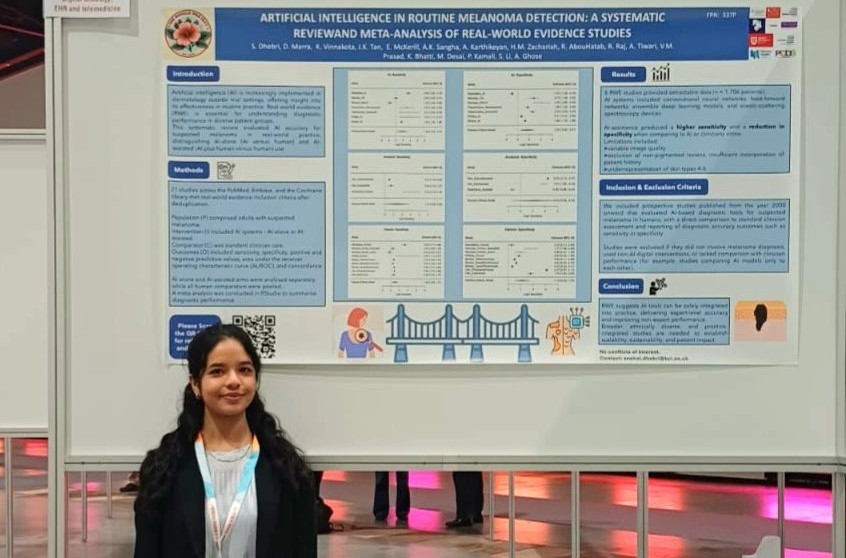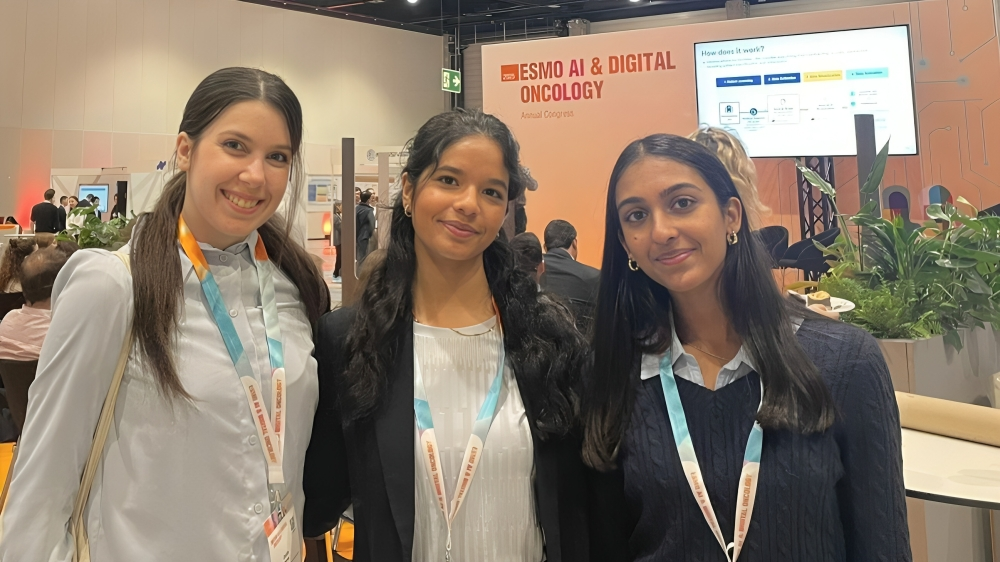Snehal Dhebri, 4th Year Medical Student at King’s College London, shared a post on LinkedIn:
“It was a pleasure to present our two posters at the ESMO AI and Digital Oncology Congress in Berlin, alongside the wonderful Dalila M..
Our posters explored:
- Artificial intelligence in routine melanoma detection: a systematic review and meta-analysis of real-world evidence studies and
- Diagnostic accuracy of artificial intelligence for early melanoma detection: a systematic review and meta-analysis of clinical trials.
By conducting a systematic review and meta-analysis, we aimed to explore the potential for AI as an early detection tool for melanoma by synthesizing evidence from both clinical trials and real-world evidence. By analysing AI-alone and AI-assisted approaches separately, the study provides a nuanced understanding of how AI functions outside controlled trial environments.
Across studies, AI-assisted diagnosis consistently improved sensitivity compared with clinicians alone, indicating better early melanoma detection. However, this benefit was accompanied by a reduction in specificity, highlighting the need for balanced clinical pathways to manage false positives.
Overall, the evidence suggests that AI can be safely integrated as a decision-support tool, enhancing clinician performance in real-world settings. The findings underline the need for larger, ethnically diverse, and workflow-integrated studies to support scalable and equitable implementation.
It has been an honour to work on The Roselle Project – what began as a small idea has grown into a collaborative initiative uniting students, doctors, and researchers with a shared goal: advancing awareness and research in melanoma and childhood cancer, with a focus on prevention, early detection, and digital innovation in oncology🩺.
During the conference, it was inspiring to hear from leading international oncologists about how digital oncology can transform cancer research and the challenges of implementing AI in clinical practice. I particularly enjoyed learning more about multimodal language models and their potential implications in oncology.
It was also fascinating to speak with clinicians about Next-Generation Sequencing (NGS) and its role in unlocking precision medicine and identifying new therapeutic opportunities.
Furthermore, it was encouraging to see how our work connects with ongoing efforts to bridge the gap between clinical trials and real-world evidence.
Overall, attending this congress was an eye-opening experience that deepened my understanding of the future of AI in oncology and its clinical applications.
I’m grateful to have worked with such an amazing team on this project and look forward to continuing our work together. Special thanks to Krishna V., Aruni Ghose, Emily McKerill, Joecelyn Kirani T., and the rest of our dedicated team for their support.”

More posts on ESMO AI 2025.


